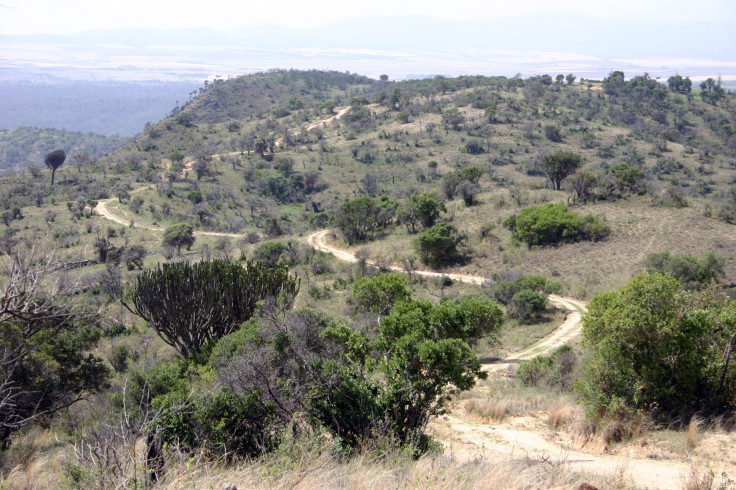Ex-British Army Colonel Murdered By Armed Gang: Twilight For Whites In Kenya?

Prince William has expressed his condolences over the death of former British army lieutenant colonel David Parkinson, 58, who was killed by an armed gang on his cattle ranch in Kenya. Five robbers attacked Parkinson and his wife Sonja with machetes and a gun on their 49,000-acre property near Nanyuki, Laikipia in central Kenya, early Sunday, after breaking into their home. His wife escaped harm by hiding in another room. Senior investigating officer Marius Tum, of Laikipia East police told BBC that the gang made off with a small amount of cash, a laptop computer and a silver statuette. Parkinson leaves behind his wife and two grown daughters. The Daily Nation newspaper of Kenya reported that one suspect has been arrested in a nearby hamlet.
Awarded the Order of the British Empire by Prince Charles for his military service in 1998, Parkinson served in the Parachute Regiment and and Airborne Forces. He departed the UK military about ten years ago to concentrate on conservation work in Kenya. It has emerged that Prince William proposed to his future wife Kate Middleton at the Lewa Wildlife Conservancy and game preserve where Parkinson served as deputy director in October 2010. He also managed the Lolldaiga Hills wildlife and livestock ranch. Harry Bucknall, who served in the Army with Parkinson, said he was "devastated" by the death of "a great friend" and "very special person.” Bucknall added: "I served in the Army with David -- he in the Parachute Regiment and I in the Coldstream Guards. He was a very special person, who I loved like a brother, and Sonja a wonderful ray of light. Good people who loved Kenya and did so much for the locals. They didn't deserve this."
Parkinson and his wife were among the few remaining white people left in Kenya. A blogger named Martin Parr wrote in 2010 that the life for the white population in Kenya is “very stable and quite comfortable. They enjoy all the hedonism you need and relations with the black population are generally positive.” Parr also noted that life of Kenyan whites is more peaceful than in other states like South Africa and Zimbabwe, where racial tensions are high and many whites have been targeted by blacks. Indeed, many whites in Kenya had fled their homes in those aforementioned countries. Parr estimated that Kenya’s white population at about 20,000, but only one-fourth of them trace their lineage as far back as 1963, when Kenya gained independence from Britain.
However, in recent years, some whites in Kenya have encountered violence. For example, in 2006, a British-born conservationist named Joan Root was murdered, in a case that remains unsolved. Perhaps the most spectacular and controversial recent incident of black-white violence in Kenya erupted seven years ago when Thomas Patrick Gilbert Cholmondeley, the scion of one of the most prominent and influential white families in the country, shot and killed two black Kenyans on his ranch, one in an alleged case of self-defense. Cholmondeley was eventually convicted of manslaughter, but sentenced to only eight months in prison and released, raising questions about the privileged still accorded to Kenya’s white community. A report in the Guardian noted that Cholmondeley initially had much support from his fellow white landowners in Kenya, who feel “besieged by poaching, murder and crime.” But when he killed a second time, much of that sympathy vanished.
Perhaps the most famous white Kenyan of all is Richard Leakey, the paleoanthropologist and politician. But he is highly unusual in that he distances himself from other whites in the country and had devoted himself to Kenyan issues exclusively. “These people [other white Kenyans] bore me stiff and I'm not part of that set at all," Leakey told the Guardian. "Some of them are pretty racist people deep down. They don't mix and have very negative attitudes to their fellow [black]Kenyans. I keep them at arm's length and I find them offensive." In contrast to other white Kenyans who typically send their children to school in England, Leakey’s two daughters were both educated at Kenyan government schools among black pupils. "They [my daughters] are both real Kenyans," he said. "They speak perfect Swahili and they know all the important networks in this country because they went to school with people who are now part of them."
Still, some whites, many of whom are wealthy and own vast tracts of Kenyan land, fear for their future – given the transgressions committed against whites by Robert Mugabe’s forces in Zimbabwe and the wholesale deportation of Asians by Idi Amin in Uganda in the early 1970s.
© Copyright IBTimes 2024. All rights reserved.




















